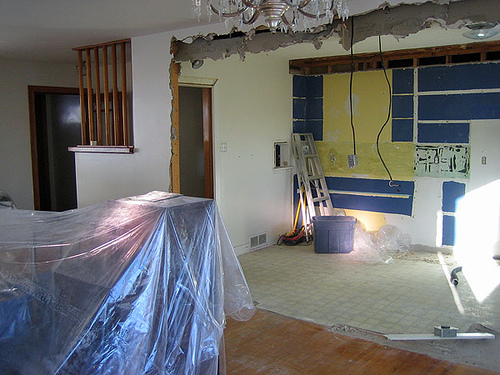Flipping Houses: What You Need To Know

Buy a house, fix it up, sell it for a profit — that sounds easy enough. But people who think they can make a lot of money by “flipping” houses may be in for a surprise.
In order to be successful at the house-flipping game, you need to have a lot of capital to invest, understand the real estate market and be able to perform improvements yourself. Without the right combination of skills and knowledge, you could end up with nothing more than a rundown property and another mortgage to pay.

If you’re thinking about flipping a house for profit, read on to learn more about what it takes to be successful
House-flipping is a calculated risk — you’re betting that you’ll be able to recoup the money you spent on improvements when the home sells. But it’s easy to let optimism cloud your view of reality, so you need to bring in a real estate agent to project what the After Repair Value (ARV) will be for a property.
After a real estate agent has given you a price the home will likely fetch after improvements, you can determine the maximum amount you should spend to purchase a fixer-upper: Multiply the ARV by 70 percent, then subtract the cost of improvements from that figure. The resulting number is the most you should spend on a property. Remember, you’ll have to pay for closing costs, insurance, utilities and other incidental costs along the way, so let math — not your instincts — be your guide.
Maybe you’ve got a workshop full of power tools — and if so, that’s great, because you’ll be able to do some of the home improvement work yourself. But you’re still going to need a professional inspection and advice from a general contractor about what repairs are essential, and how much they might cost.
You won’t be able to fix everything yourself, at least not within a reasonable timeframe. So, who’s going to help you? Will you have to pay someone to update plumbing or wiring? Will you have to pay for a new furnace, new roof or new water heater? Don’t assume that you can flip a house by making cosmetic changes. If you found a home for sale at a rock-bottom price, that likely means it’s in need of major work.
If you take out a mortgage to buy your fixer-upper, you could be hit with a pre-payment penalty if you repay your loan too quickly. Instead, aim for a home that you can afford to pay cash for, so you can avoid the problems that may accompany a short-term mortgage.
You should plan to keep any property you’re renovating for at least three months, because if you buy and sell a home in less than 90 days, it’s ineligible for Federal Housing Administration mortgage insurance. Also, if you make flipping homes your occupation, the IRS is going to tax your profits like income, which can be quite a shock to unsuspecting house-flippers.
Flipping homes may be a way for handy people to make some extra money, but in general, it’s not an occupation that will make you rich. Because of the many risks involved with buying fixer-uppers, make sure you know what you’re doing before taking the plunge.
Image credit
